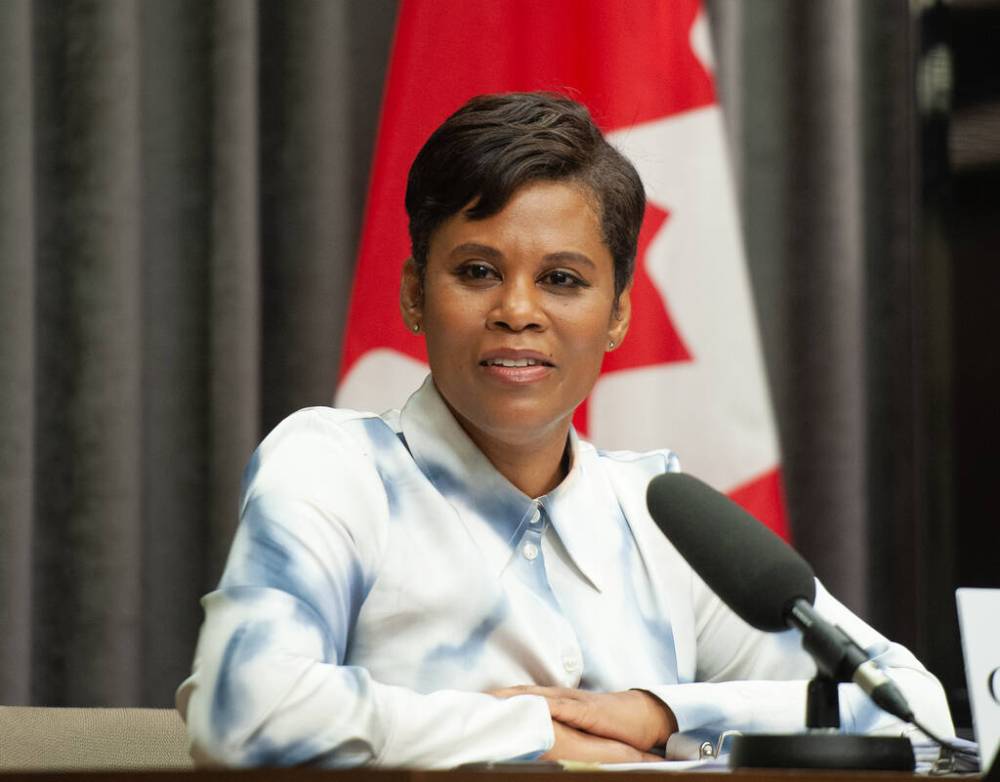New funding boost ‘essential’ for Klinic crisis hotline
Advertisement
Read this article for free:
or
Already have an account? Log in here »
To continue reading, please subscribe:
Monthly Digital Subscription
$0 for the first 4 weeks*
- Enjoy unlimited reading on winnipegfreepress.com
- Read the E-Edition, our digital replica newspaper
- Access News Break, our award-winning app
- Play interactive puzzles
*No charge for 4 weeks then price increases to the regular rate of $19.00 plus GST every four weeks. Offer available to new and qualified returning subscribers only. Cancel any time.
Monthly Digital Subscription
$4.75/week*
- Enjoy unlimited reading on winnipegfreepress.com
- Read the E-Edition, our digital replica newspaper
- Access News Break, our award-winning app
- Play interactive puzzles
*Billed as $19 plus GST every four weeks. Cancel any time.
To continue reading, please subscribe:
Add Free Press access to your Brandon Sun subscription for only an additional
$1 for the first 4 weeks*
*Your next subscription payment will increase by $1.00 and you will be charged $16.99 plus GST for four weeks. After four weeks, your payment will increase to $23.99 plus GST every four weeks.
Read unlimited articles for free today:
or
Already have an account? Log in here »
Hey there, time traveller!
This article was published 10/08/2022 (1227 days ago), so information in it may no longer be current.
A first-of-its-kind federal-provincial funding deal announced Wednesday will help Manitoba’s 24-7 crisis hotline hit hard by the COVID-19 pandemic.
“We know that crisis hotlines are a lifeline for women fleeing domestic violence,” said Marci Ien, federal minister for women, gender equality and youth.
Ien and Rochelle Squires, provincial minister for families and the status of women, held a news conference at the Manitoba legislature announcing a bilateral deal to provide $1 million over four years to Klinic Community Health’s crisis hotline.

ETHAN CAIRNS / WINNIPEG FREE PRESS
Ministers Marci Ien and Rochelle Squires shake hands in the legislative building after the announcement for crisis hotline funding in Manitoba.
“Timely connection to support and services can and often is the difference between life and death,” said Ien, who hailed Manitoba for being the first province to sign the bilateral funding agreement to support gender-based violence crisis hotlines across Canada.
Many such hubs saw a surge in calls since the COVID-19 pandemic began in 2020, while experiencing a dramatic drop in the number of trained volunteers they rely upon, Ien said.
Winnipeg-based Klinic was no exception.
“Before the pandemic, we had around 150 volunteers who were taking calls on the crisis lines,” said executive director Ayn Wilcox, who took part in the news conference virtually. “We dropped down to something like around 30 when the pandemic hit.”
Still, in 2021, Klinic reported answering more than 38,000 crisis line calls.
“We’ve been in the process of rebuilding the number of volunteers that we have who can respond to those calls,” said Wilcox.
Since the start of 2022, Klinic has trained an additional 75 volunteers, and more training is planned for the fall.
“Because the complexity of those calls is also increasing we need to make sure that we’re providing (volunteers) with the adequate support, the mentoring, and the ability to have clinical consultation to ensure that we continue to provide a really safe, accessible services for folks,” Wilcox said.
“This new funding is essential for crisis hotline programs like the one at Klinic.”
There was a 231 per cent increase in calls to Klinic’s sexual assault crisis program over the last two years, according to the Winnipeg-based resource.
Gender-based violence was a “huge” problem before the pandemic, as well, said Ien, MP for Toronto Centre. In 2019, rates of intimate partner violence were more than 3.5 times higher among women than men, and especially worse for Indigenous women, the federal minister said.

ETHAN CAIRNS / WINNIPEG FREE PRESS
“Timely connection to support and services can and often is the difference between life and death,” said Marci Ien, federal minister for women, gender equality and youth.
Manitoba has some of the highest rates of intimate partner violence and family violence in Canada, said Squires. It primarily affects women and girls, and disproportionately affects those living in rural, remote, and northern communities, Indigenous people, people of colour and the LGBTTQ+ community.
Indigenous women account for about five per cent of all women in Canada, but from 2014 to 2019, they accounted for 21 per cent of all women killed by an intimate partner, said Ien. In 2019, 11 per cent of female students on campus said they had experienced a sexual assault.
“And then came COVID,” and its isolation, restrictions, stress and anxiety that exacerbated underlying problems. Ien referred to gender-based violence as a “shadow pandemic.”
“It continues to be a huge problem in Canada — one that takes a physical, psychological and economic toll on survivors, witnesses and, of course, children.”
Squires said the added financial pressure with rising prices and inflation aren’t helping the issues, but her government will be announcing measures in the near future to assist Manitobans struggling with affordability issues.
“Our government is certainly cognizant and aware and consulting with many community stakeholders about how people are dealing with the rising cost of gas and the rising cost of food,” Squires said.
carol.sanders@freepress.mb.ca

Our newsroom depends on a growing audience of readers to power our journalism. If you are not a paid reader, please consider becoming a subscriber.
Our newsroom depends on its audience of readers to power our journalism. Thank you for your support.



